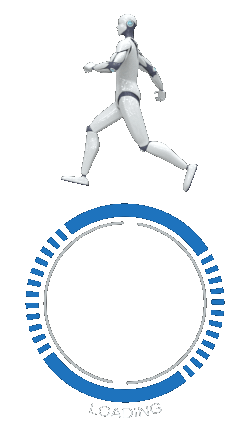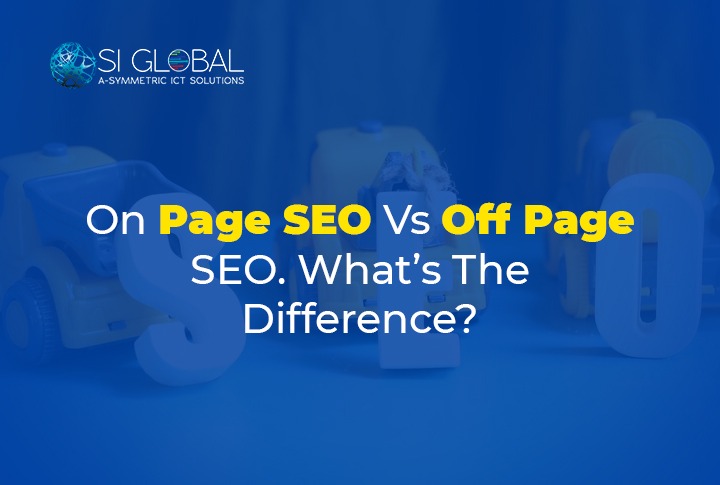Search engine optimization strategies can be divided into two different categories: on-page SEO and off-page SEO. Both are essential to the success of your SEO campaign, but they stand on a completely different side of the fence.
On-page SEO focuses on optimizing parts of your managed website, while off-page SEO is a domain by creating content and collecting backlinks from other websites. Focuses on increasing your website authority.
To better understand the difference between the two, you need to understand at a basic level how search engine algorithms work. Let’s disassemble it.
There are two main aspects that search engines see when ranking your website compared to other websites on the internet. On-Page SEO Finds out What Your Website (or Page) Is
Off-page SEO finds out how prestigious and popular your website is Simply put, what you rank is primarily determined by factors on the page, but the height of your ranking in search results is primarily determined by factors outside the page.
What is On-page SEO?
On Page SEO optimization (also known as “on-site” SEO) is the act of optimizing different parts of your website that affect your search engine rankings. Where your website appears on search engine results pages is determined by many ranking factors, including website accessibility, page speed, optimized content, keywords, title tags, and more on your own website.
On-Page SEO Checklist:
How do you make sure your On Page SEO services are up to date? This is an onsite optimization checklist to help you curate your strategy.
Title
Include your targeted keywords in the title tags of every page of your website. There are many best practices for creating effective title tags.
- Limit title tags to 55 to 60 characters (including spaces)
- Move the keyword closer to the beginning of the title (only if it sounds natural)
- Don’t fill-up the keywords At the end of the title tag, paste the mark separated by a pipe (|)
Heading (H1)
Headings are usually the largest word on a page, so search engines give them a little more weight than the text on other pages.
It’s a good idea to include target keywords in the headlines of each web page, but make sure they accurately reflect the excellent content of your page.
Make sure that the H1 is limited to one per page. All other headers are H2 or H3.
Image Alternative Text
Any content management system needs to be able to add what is called “alternative text” to every image on your website. This text is not visible to the average visitor. The alt text is actually used by screen reader software to help visually impaired Internet users understand the content of the image. Search engines search for images in a similar way. Including some relevant keywords while accurately describing the image helps search engines understand the content of the page.
If you write the alt attribute for each image, your website complies with WCAG (Web Content Accessibility Guidelines).
Mobile Friendly
In recent years, Google has prioritized mobile page load speed as an important ranking indicator.
“How do I know if a site is mobile-friendly?” You can paste the URL of the site into this test and Google will tell you how friendly the site is based on the current algorithm.
In addition to loading mobile pages, website design must consider the mobile user experience. One way to review and optimize your mobile device’s website layout is to create a mobile usability report that identifies potential issues with your website.
Page Content
The content on your page should be useful to people. If they are looking for something too specific to find on your page, they need to be able to find what they are looking for. Must be easy to read and provide value to the end-user
Internal Link
Internal links to other pages on the site are useful to both visitors and search engines.
When adding an internal link, make sure that the associated anchor text exists. Anchor text is clickable text within a hyperlink (usually indicated by a blue font color and underline). To optimize the anchor text, make sure the selected word or phrase is related to the linked page.
On-Page SEO ensures that both potential customers and search engine robots can read your website. Great on-page SEO makes it easy for search engines to index web pages, understand the content of your site, easily navigate the structure and content of your site, and rank your site accordingly. .. As a best practice, make sure your page content contains 1 to 3 relevant internal links.
What is Off-Page SEO?
“Off page SEO Services” (also known as “off-site SEO”) refers to activities performed outside your website in order to influence your ranking on the Search Engine Results Page (SERP). increase. In addition to SEO on the page, this contains some of the basic SEO elements that help you rank your website
How to Optimize Off-Page SEO?
There are several factors that affect off-page SEO rankings. Each approach has a different strategy, but with the comprehensive goal of building external site trust and reputation.
- Inbound link
- Social media marketing (SMM)
- Guest blogging and guest posting
- Mention of unlinked brands
- Influencer marketing
The biggest off-page SEO factor is the number and quality of backlinks to your website. Here are some examples of how to link to your site. Worth it, so create great content that people will want to link to. Social media sharing of content that ultimately produces links. Send an email to influencers in your industry and finally link to you. Guest blogs for sites related to you. These guest posts contain links to websites. The number of links is still important, but content authors and SEO experts recognize that the quality of links is more important than the number of links. Therefore, creating shareable content is the first step in getting valuable links and improving off-page SEO.
Conclusion
Although both may seem a little more different than usual, they serve the same purpose and one cannot be utilized to its proper extent without the use of the other.
Also Read: Difference Between Local SEO And International SEO And Which Would Be Better For Your Business


